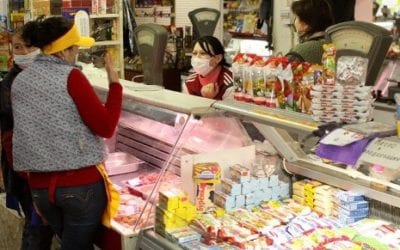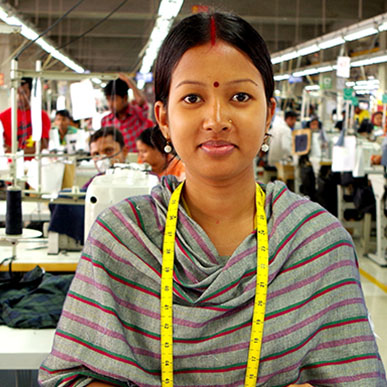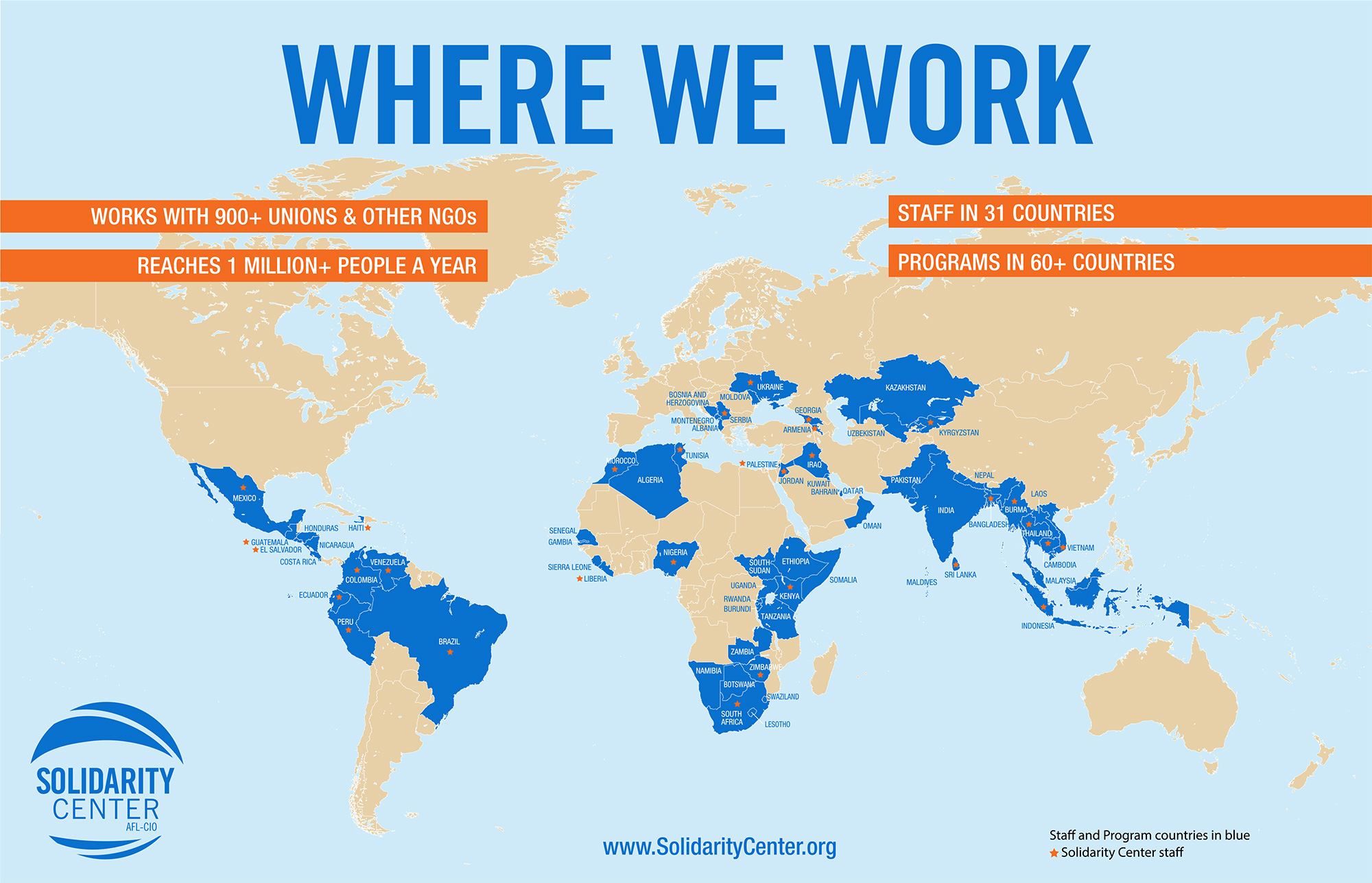UKRAINE WORKERS: WARTIME DIARIES
WHY WE’RE DIFFERENT
We are the largest U.S.-based international worker rights organization partnering directly with workers and their unions, and supporting their struggle for respect, fair wages, better workplaces and a voice in the global economy.
We value the dignity of work and workers. We know how all the work everyone depends on gets done–who picks the food for your table, cleans your home so you can go to the office, makes your clothes, keeps your streets clean. And at our core is every worker’s right to solve issues through collective action and to form unions.
What’s New

More Attacks on Rights of Ukrainian Workers
Read More

Haiti Garment Workers Win Key Benefits
Read More

Podcast: In Midst of War, Ukrainian Parliament Attacks Worker Rights
Read More

The Solidarity Center Podcast

BILLIONS OF US, ONE JUST FUTURE
CONVERSATIONS WITH WORKERS (& OTHER SMART PEOPLE) WORLDWIDE SHAPING THE WORKPLACE FOR THE BETTER
Hosted by Solidarity Center Executive Director Shawna Bader-Blau
Subscribe: Amazon | Apple Podcasts | RSS | Spotify | Stitcher
No Results Found
The page you requested could not be found. Try refining your search, or use the navigation above to locate the post.
Our work
Programs in
Countries
Reaching
People
Works with
Unions & other Ngos

Reaching 1 Million+ People Worldwide
Solidarity Center in the News
Interview with Shawna Bader-Blau
“You don’t leave your human rights in one country when you cross into another. You don’t check your human rights at a border; you keep them with you”—Solidarity Center Executive Director Shawna Bader-Blau in interview with International Catalan Institute for Peace.
Bangladesh: Stop Persecuting Unions, Garment Workers
Starting in mid-December, the Solidarity Center, which works closely with workers and unions, documented instances in which 14 national union federations were either forced by police to shut their offices in Ashulia, Gazipur, and Chittagong, or closed them because of police harassment.
The Conditions at Bangladeshi Apparel Factories Are Still Horrible. What Happens to Workers Who Speak Up Might Be Worse
The factories reopened in late December, but a “really intense” security presence is everywhere, Jennifer Kuhlman from the Dhaka office of the Solidarity Center, an AFL-CIO allied organization, told me: not just in Ashulia, but also in other industrial areas across the country. She said the arrests, the mass firings and the continuing heavy surveillance by police have created a climate of fear among workers and labor organizers.
Follow Us On Twitter
Mark your calendar
Test 12-1-22
Read More
Women Workers’ Voices and Participation on the COVID-19 Recovery Front Lines
Read More
